
After school on June 24th, 2016, we welcomed a special guest, Jamal from Syria, to lead a talk session as part of our Global Week series.
Jamal is living in Japan with his family, and he is one of the few officially recognized Syrian refugees living in Japan.
In the beginning, Jamal talked about the situation in Syria, his life in Syria before the current conflict started,
how he came to Japan, and about his new life here in Japan.
Following this, Jamal answered many questions from the students, and then the students discussed related issues in small groups.
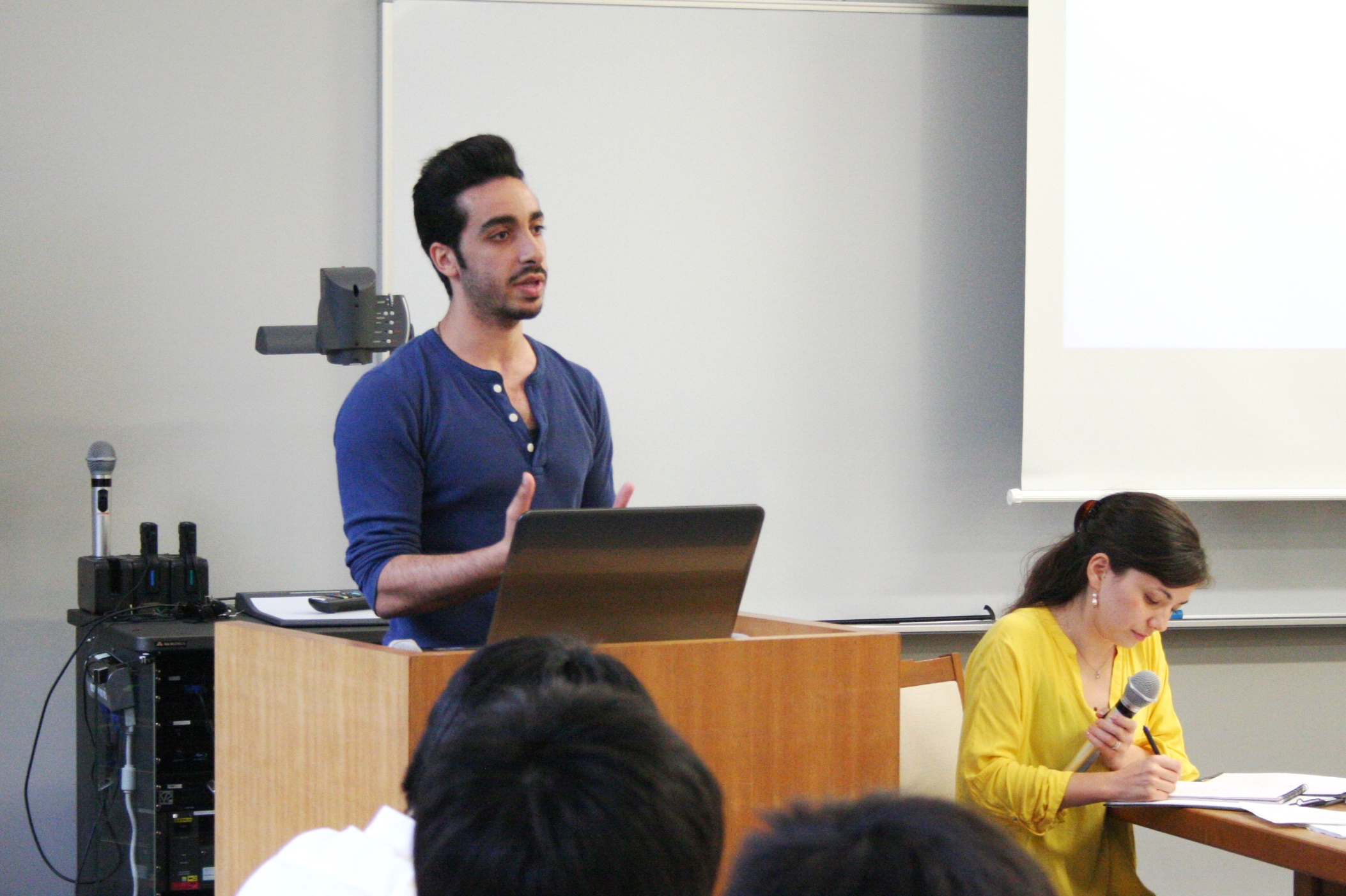
Several parts from Jamal’s talk left a lasting impact.
Firstly, he showed the natural beauty of Syria, some of the country’s important cultural cities and buildings, and some of its traditional food.
He also showed pictures form his own life, where he was a final year university student studying English literature.
Syria seems to have been presented as a war-torn country for so long that it was surprising to see what a beautiful and normal place it was before the war.
Jamal then showed how the conflict within Syria and the constant bombings have made it impossible for people to continue living normal lives.
He showed pictures of the same places in Syria “before and after” the conflict.
He also showed video of his own home, which had been destroyed by a bomb.
It helped us understand why so many people feel they have to flee their homes, andi t is clear that the conflict has had terrible consequences for the ordinary citizens of Syria.
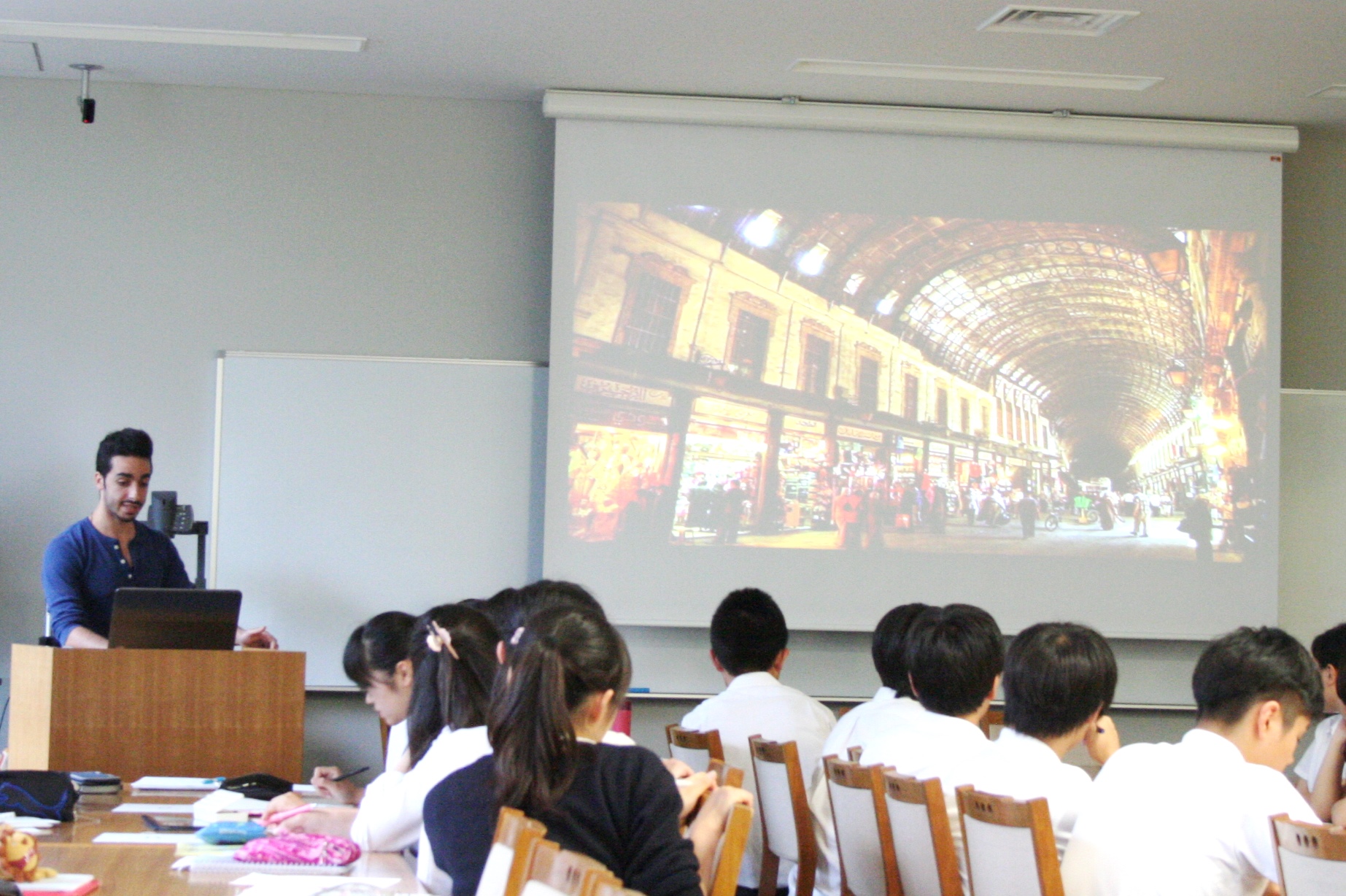
It is difficult to find reliable statistics, but it is estimated by some that 470,000 people have been killed since the conflict began, and that over half the population have fled their homes.
Many people have escaped to neighboring countries, and others have tried to get to Europe.
Jamal talked about how and why he and his family came to Japan,and the procedure to become recognized as a refugee in this country. He talkedabout his experiences since coming to Japan, and about his desire to start asuccessful new life here with his family.
The students asked a variety of thoughtful and meaningful questions, which showed a genuine connection with the issues.
These included questions on the larger implications of the Arab Spring, comments on the refugee admittance policy in Japan and other countries,
and questions on how the students could get involved and help.
Finally, the students got into small groups and discussed many of the issues they had just heard about.
During this time, Jamal engaged with lots of groups, and it was a great opportunity for the students to communicate with Jamal one-to-one.
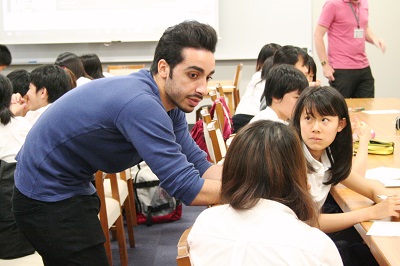
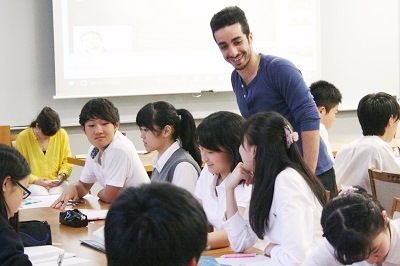
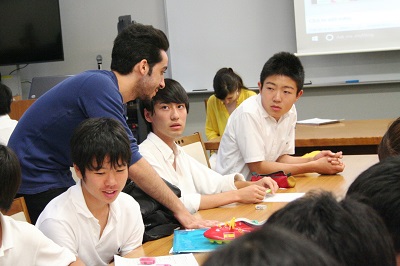
Overall, it seemed to be a very meaningful experience for all the students and staff at the event, and helped us all to connect with an issue that had seemed so far away.
Jamal was a friendly and approachable young man.
We all wish him well in the future, and hope he will visit us again soon!